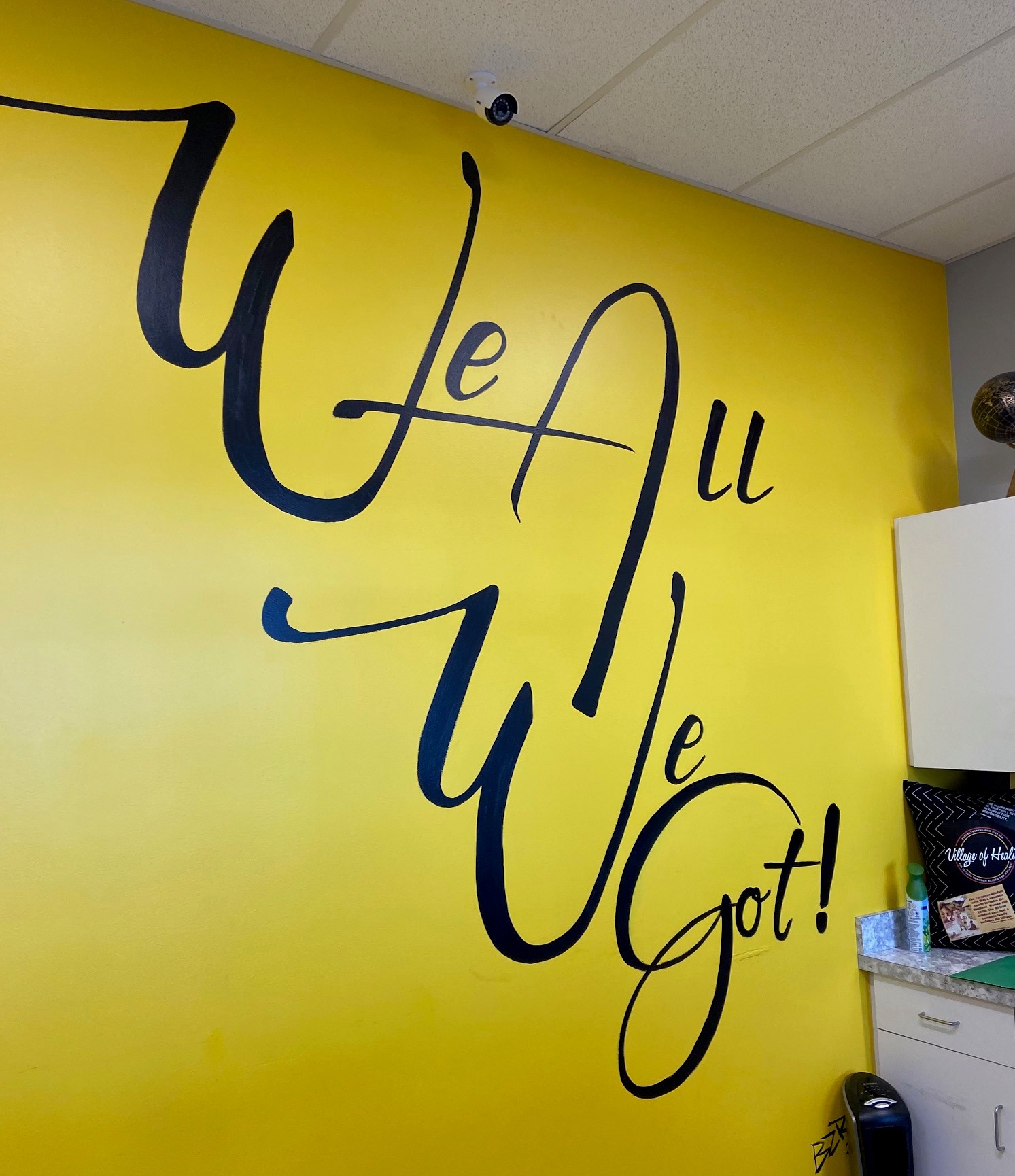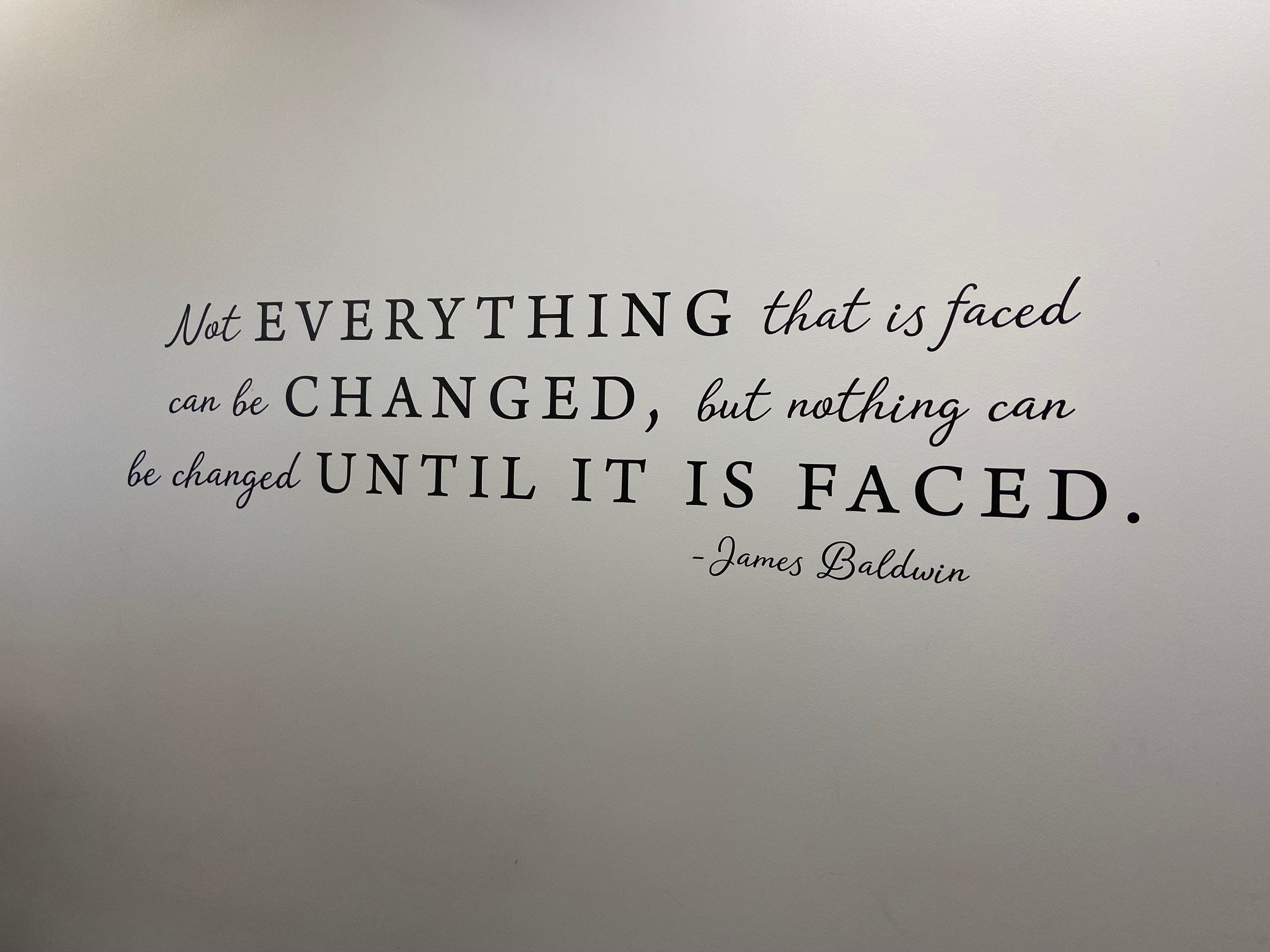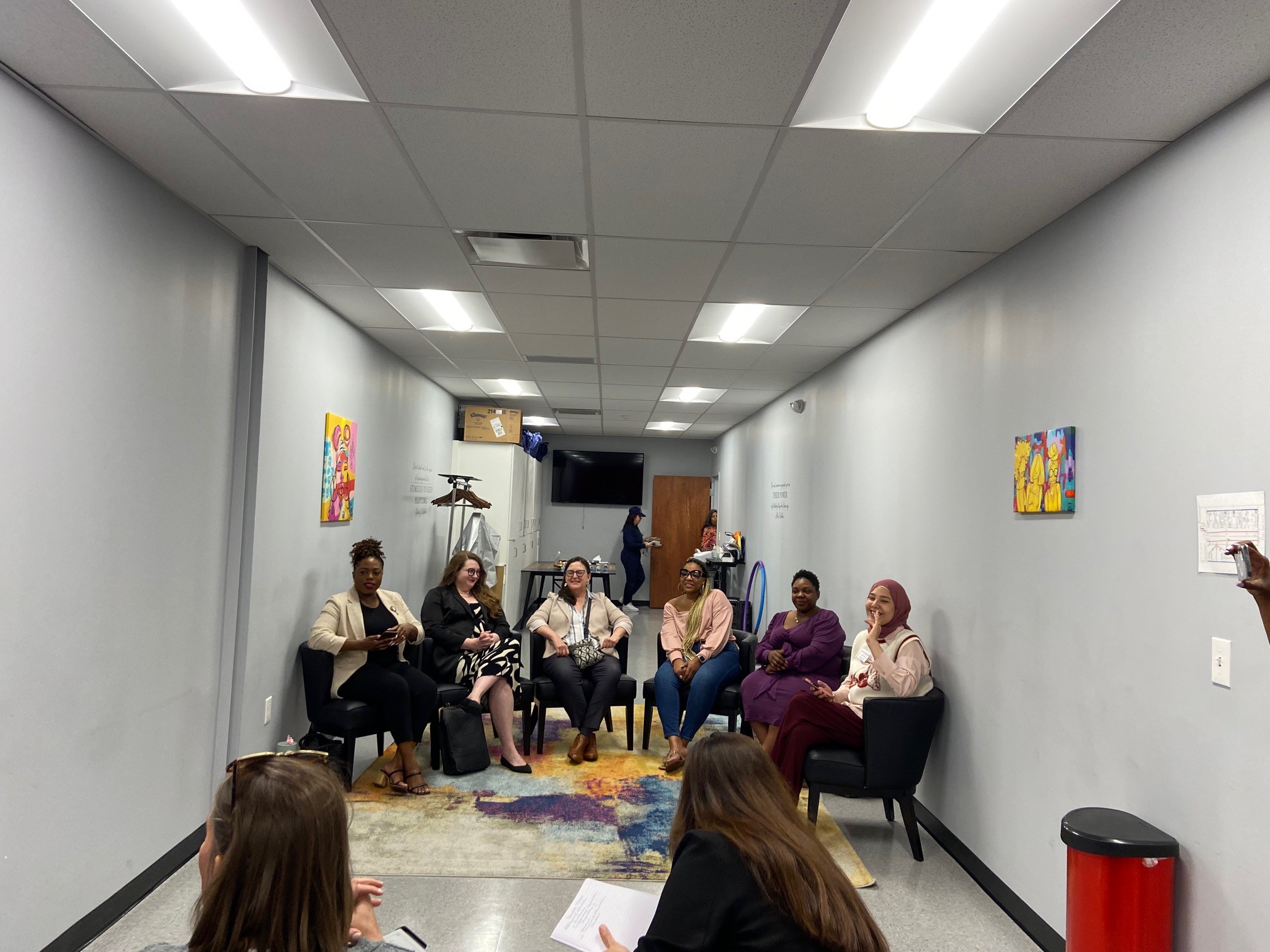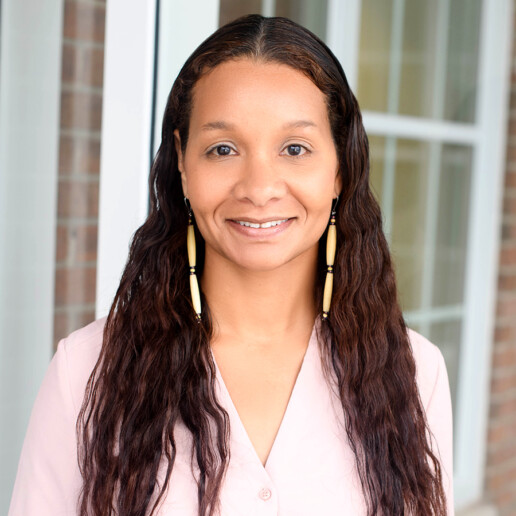BY Qiana Williams, PLACES Fellow and Program Officer, Central New York Community Foundation
“We All We Got,” was boldly written in black letters against the backdrop of a warm yellow wall in the reception area of the Village of Healing Center of Cleveland, Ohio. This community-based organization provides high-quality health and healing services for Black and brown women with dignity, attentiveness and cultural understanding. The warm yellow wall we were greeted with reminded me of the golden yellow used to represent the Yoruba orisha Oshun, the African goddess of fresh water, creativity, love and life. Many within the African diaspora carried her over to the “New World,” and to many descendants of the African diaspora she is a symbol of hope.
And hope is what I felt when I entered the Village of Healing Center, our third stop on the PLACES Fellowship journey of 2024.

Photo Credit: Qiana Williams
We were immediately greeted with food, generosity and, most vital of all, knowledge and wisdom of what Black women leadership, when fully resourced, looks like. As we moved into the meeting space, we were surrounded with powerful uplifting messages reminding us of the urgency and the call to action we all need to heed to address the evils of systemic racism.

Photo Credit: Qiana Williams
The Village of Healing Center in Cleveland was born from the sheer will of several Black women trying to address the gross disparities and inequities in healthcare for Black and brown people. Launched in 2019 prior to the pandemic, the Village of Healing Center began building high-quality healthcare services and community programs with Black healthcare professionals. They offer programs that not only address health, but also take a holistic approach to healing. Programs such as Mother to Mother and Sister Circle focus on community building. The Village of Healing Center provides services to more than 700 Black and brown women.
Like all inventive Black women leaders, this vital work is done in partnership with others, such as Birthing Beautiful Communities — a community-based organization (CBO) led by Black woman that has served more than 600 clients and trained more than 75 women as perinatal support professionals, combating the social determinants that lead to poor birth outcomes. To strengthen support for this work and to bring awareness to the disproportionately high rates of mortality for Black women, both of these CBOs work in tandem with Enlightened Solutions — a nonprofit think tank led by two women (one who is Black and one who is white) that uses data to strategically address inequity and systemic injustice.
“Those who live in the attic know where the roof leaks.”
– Ibo proverb
As this intersectional, passionate panel shared their story of how they came together to do this powerful work, it was evident that if we funders want to be changemakers and power brokers for equity, then the most important thing we can ask is “What does the community need and how do I heed?”
To “center the margins” as Patricia Hill Collins challenges us to do in systems of oppression, we must listen to those closest to the issues as therein lies the solutions. These women leaders felt that it was more important to fight their own battle rather than asking for allies. Having walked that long, lonely road to allyship, they knew all too well that the best way to create the change that was needed was to lean on each other. They knew no one would understand better than them how to solve these critical issues. As their work radiated out, it attracted funders and donors who understood its urgency and made the investment. But, the good work is never done and true allyship for community-based organizations like these means building trust-based relationships. It means making it so that they don’t have to go it alone. It means making the investment of time, talent and dollars. The work of organizations like these may be in jeopardy as we recently learned of the court of appeals ruling in the Fearless Fund case.

Panel at Village of Healing Center. From left to right: Chinenye Nkemere, Bethany Studenic,
Christie Manning, Da’na Langford, Jazmin Long and Talissa Lahaliyed.
Photo Credit: Qiana Williams
It impressed upon me and all of us working in philanthropy that retreat is not an option! It is never an option. That liberatory work, as the PLACES mentor Bina M. Patel passionately conveys, must continually seek to disrupt oppression. We as funders need to creatively and strategically leverage our power and privilege to ramp up the work of organizations like the Village of Healing Center if we want to see community transformation and if we are to stay true to anti-racist work.
Three poignant key takeaways that the panel shared with us were:
- Try new solutions — don’t be afraid to take risks and support impactful innovative work
- Implement emergent design and co-design — talk to those in the metaphorical attic, collaborate, “scheme and dream” to find the solutions, and get out into the community
- Provide more multi-year operational funding — the only way we can know if it’s working is to give time to sow the seeds.
Funders don’t have to practice all of the above in any particular order, but we do have a responsibility to find a way to disrupt the same systemic outcomes. We have a responsibility to power up resource leaders and communities on the margins for success and for self-determination. As they say, put our money where our mouth is!
I walked away from this day feeling deeply inspired with the hope that I will continue my commitment as a changemaker to create and support self-determination for those who have been historically disinvested. I will do this through community building and trust-based relationships.
For me, these amazing Black women leaders of the Village of Healing Center, the Birthing Beautiful Communities and Enlightened Solutions embody the creativity, life and love of the Yoruba goddess Oshun, and like Oshun they are harnessing hope for an entire generation.
About the Author
 Qiana Williams is a program officer at the Central New York Community Foundation, working directly with community residents and nonprofit staff to assist in the design and implementation of the Community Foundation’s strategic initiatives and grantmaking. Qiana is a member of TFN’s 2024 PLACES Fellowship cohort.
Qiana Williams is a program officer at the Central New York Community Foundation, working directly with community residents and nonprofit staff to assist in the design and implementation of the Community Foundation’s strategic initiatives and grantmaking. Qiana is a member of TFN’s 2024 PLACES Fellowship cohort.
